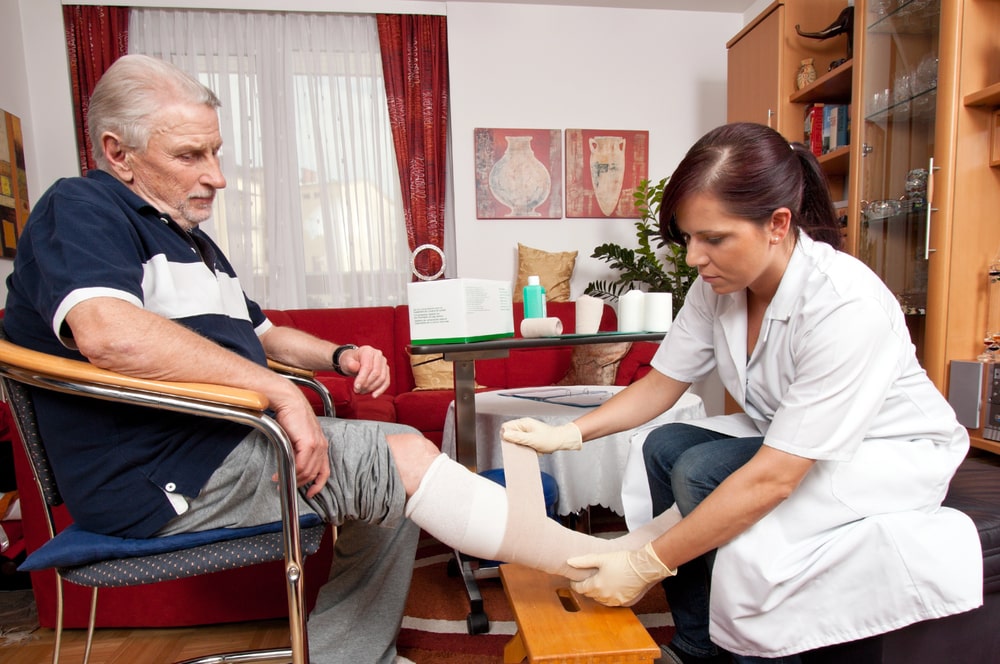Healing at Home: Wound Care Tips and Techniques
 Recovering from a wound, whether it’s a minor cut or post-surgery care, can be a delicate process—especially when you're healing at home. Proper wound care is essential to prevent infections, speed up healing, and reduce the chances of scarring. If you or a loved one are recovering from an injury or surgery, knowing the basics of wound care can make all the difference. Let’s explore some practical tips and techniques for healing at home.
Recovering from a wound, whether it’s a minor cut or post-surgery care, can be a delicate process—especially when you're healing at home. Proper wound care is essential to prevent infections, speed up healing, and reduce the chances of scarring. If you or a loved one are recovering from an injury or surgery, knowing the basics of wound care can make all the difference. Let’s explore some practical tips and techniques for healing at home.
Cleanliness is Key
The first and most important step in wound care is keeping the area clean. Bacteria can easily enter through even the smallest cut, leading to infections that delay healing. Here’s how you can keep the wound area clean:
- Wash your hands thoroughly before touching the wound or changing a bandage.
- Gently clean the wound with mild soap and water, or a saline solution, to remove any dirt or debris.
- Avoid using alcohol or hydrogen peroxide, as these can irritate the skin and slow down the healing process.
Apply an Antibacterial Ointment
Once the wound is clean, applying a thin layer of antibacterial ointment can help prevent infections. Look for ointments that contain ingredients like bacitracin or neomycin, which are effective in keeping bacteria at bay. After applying the ointment, cover the wound with a clean bandage or dressing to keep it protected.
Choose the Right Bandage
Not all bandages are created equal, and choosing the right one can make a difference in the healing process. For smaller wounds, adhesive bandages work well to keep the area clean and protected. For larger wounds, you may need to use gauze and medical tape, or even a specialized wound dressing designed for sensitive or delicate skin. It’s important to change the dressing regularly—at least once a day or whenever it gets wet or dirty.
Monitor for Signs of Infection
As you care for your wound, keep a close eye on how it’s healing. Redness, swelling, increased pain, warmth around the wound, or drainage of yellow or green pus are all signs of infection. If you notice any of these symptoms, contact your healthcare provider immediately. Catching an infection early can prevent it from getting worse and may even save you from more serious complications.
Elevate the Wound Area
If you have a wound on your leg or arm, keeping it elevated can help reduce swelling and promote healing. Elevation encourages blood flow back to the heart and prevents fluids from pooling around the wound site, which can slow down the healing process. When sitting or lying down, try to keep the injured area raised above the level of your heart using pillows or cushions.
Stay Hydrated and Eat Well
Healing happens from the inside out, so it’s essential to support your body with proper hydration and nutrition. Drinking plenty of water helps your body stay hydrated, which is vital for wound healing. Also, make sure you’re getting enough protein, vitamins, and minerals to help repair tissues. Foods rich in vitamin C (like oranges and berries) and zinc (found in meat, nuts, and seeds) are especially helpful for wound healing.
Know When to Call a Professional
Most minor wounds can be treated at home, but it’s important to know when to seek professional help. If your wound is deep, won’t stop bleeding after applying pressure for 10-15 minutes, or shows signs of infection, don’t hesitate to contact a healthcare provider. Likewise, if you’re dealing with a surgical wound, follow your doctor’s aftercare instructions carefully and reach out to them if you notice anything unusual.
Specialty Wound Care Products
For some wounds, standard bandages and gauze might not be enough. Medical Xpress offers a range of specialty wound care products designed to promote faster healing and provide added comfort. From advanced dressings that keep the wound moist to antimicrobial gauze, these products are ideal for those recovering from surgery or managing chronic wounds. If you’re not sure which products are right for you, our team is always available to help guide you through your options.
Healing at home doesn’t have to be overwhelming. By following these simple wound care tips and staying attentive to any changes, you can help your wound heal quickly and avoid complications. Remember, every wound is different, so listen to your body and seek medical advice if you’re unsure about anything.
Need assistance with wound care products? Contact Medical Xpress today. Our expert team is here to ensure you have the supplies and support you need to heal safely and comfortably at home!